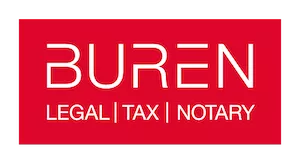- within Tax topic(s)
- with Finance and Tax Executives
- in South America
- in South America
- in South America
- in South America
- with readers working within the Retail & Leisure industries
Dutch tax law provides for a facility aimed at attracting highly skilled professionals from abroad by allowing employers to reimburse certain expenses tax-free (commonly referred to as the expat rulings). This facility has been subject to political debate for several years. On Budget Day (Prinsjesdag), 16 September 2025, the Dutch caretaker government announced further amendments to these tax rules.
This tax alert provides an overview of the current rules and outlines the changes that will take effect as of 1 January 2026 and 1 January 2027. Employers and employees are advised to carefully assess the potential impact of these changes and determine whether action is required before year-end.
Background of the Facilities
Foreign employees working in the Netherlands often incur additional expenses as a result of relocation. These costs, known as extraterritorial costs, may qualify for a specific tax exemption under Dutch law. Employers have two options for reimbursing such costs without treating them as taxable salary:
i. Reimbursement of actual extraterritorial costs ("ETC Scheme"), or
ii. Application of the Expatriate Scheme (the "30% Ruling").
If the ETC Scheme is applied, the employer reimburses actual extraterritorial costs. It must be able to demonstrate that the expenses were incurred. All costs and corresponding reimbursements must be recorded in the payroll administration on a per-employee basis. Under the 30% Ruling, the employer may designate a fixed percentage of the employee's remuneration, including any reimbursement itself, as a tax-exempt allowance for extraterritorial costs, without the need to substantiate actual expenses.
In addition, employees eligible for the 30% Ruling could elect for the partial non-resident taxpayer regime, under which they were treated as non-resident taxpayers for income derived from substantial interest (box 2) and from savings and investments (box 3). The ETC Scheme, the 30% Ruling, and the partial non-resident regime have been the subject of political debate for many years, leading to the upcoming legislative changes.
Legislative Changes
This paragraph outlines the relevant legislative changes in tax law with respect to the ETC Scheme, 30% Ruling and partial non-resident taxpayer regime.
ETC Scheme
As of 1 January 2026, the scope of the ETC Scheme will be narrowed. Certain expenses will no longer qualify as extraterritorial costs that may be reimbursed or provided on a tax-free basis. This restriction specifically concerns additional living expenses, such as costs for gas, water, electricity and other utilities, as well as additional costs related to private telephone calls with the home country.
30% Ruling
The 30% Ruling will also undergo significant amendments. From 1 January 2027, the tax-free allowance will be reduced from the current 30% to a flat 27% of the employee's remuneration. Transitional rules have been put in place for employees who obtained the 30% Ruling prior to 2024. This group may continue to benefit from the 30% exemption for the full duration of their ruling, which generally lasts for five years. In addition, a cap on the salary eligible for the ruling has been applicable since 1 January 2024, with the maximum set at EUR 246,000 for 2025 (subject to annual indexation). While transitional law initially excluded employees who already benefitted from the ruling before 2023, this grandfathering measure will end on 1 January 2026, after which the cap will also apply to this group.
The partial non-resident taxpayer regime
The partial non-resident taxpayer regime, which allowed expatriates to be treated as non-resident tax-payers for box 2 and box 3 income, was already abolished as of 1 January 2025 for new employees. Employees who obtained the 30% ruling before 2024 may continue to apply the regime during a transitional period, but this option will be available until 31 December 2026.
Employer Responsibilities and Contractual Implications
Although employees generally remain responsible for their own tax compliance, the Dutch Supreme Court (HR 22 September 2023, ECLI:NL:HR:2023:1276) ruled that employers may, under certain circumstances, have a duty pursuant to article 7:611 of the Dutch Civil Code (good employment practices) to inform or warn employees of relevant changes in tax legislation. This duty is context-dependent and arises primarily where the employer knows, or reasonably should know, that the employee faces a foreseeable risk of financial harm, and where a timely notification could mitigate or prevent such harm.
Where legislative changes affect the employer's own withholding obligations, such as adjustments to the 30% Ruling, employers are expected to stay informed and to communicate relevant developments to affected employees. This is not a duty to provide tax advice, but to prevent employees from being caught off guard by legislative changes with potentially financial consequences. Failure to do so could, in specific circumstances, result in liability for (part of) the employee's financial loss, particularly where the employer is professionally organised and the harm could have been avoided through a simple warning.
Beyond this general duty of care, the contractual impact of the legislative changes will depend on the wording of the individual employment agreements. Many expatriate employment agreements contain clauses addressing the possible amendment or withdrawal of the 30% Ruling or comparable tax facilities. The legal consequences of such clauses vary and must be assessed on a case-by-case basis.
Where a clause merely stipulates that the parties will "consult," "discuss," or "renegotiate in good faith" following a legislative change, it creates a duty to enter into genuine discussions, but not to reach a particular outcome. If the clause contains a substantive promise, such as a commitment to maintain the employee's net income, compensate for lost tax benefits, or adjust remuneration, the employer may be contractually obliged to implement a financial correction once the legislative amendments take effect. The extent of this obligation depends on the clause's precise wording and the parties' original intent.
In the absence of any such clause, the default position under Dutch law is that tax changes fall within the employee's personal tax sphere. In principle, the employer is not required to offer compensation, unless prior assurances or established company practice indicate otherwise. However, even absent a contractual basis, employers may still have a duty to inform affected employees of relevant legislative changes, particularly where these have a foreseeable and material financial impact.
Key Takeaways
The upcoming changes will significantly alter the tax treatment of expatriates in the Netherlands. Employers may have a (contractual) duty to inform affected employees and, in some cases, to provide compensation for the financial impact. Employers are therefore advised to review existing employment agreements and internal policies to determine whether any obligation to inform, renegotiate, or compensate is triggered by the upcoming legislative changes.
Employees themselves are advised to review their personal tax position and consider whether steps need to be taken before the end of the year
The content of this article is intended to provide a general guide to the subject matter. Specialist advice should be sought about your specific circumstances.



